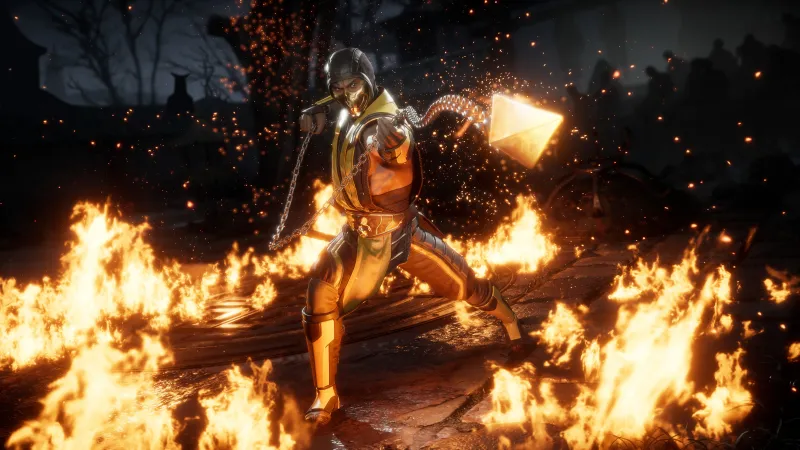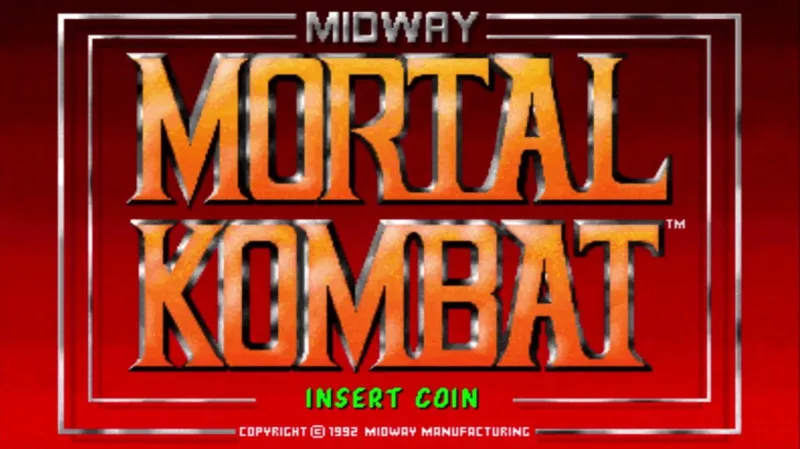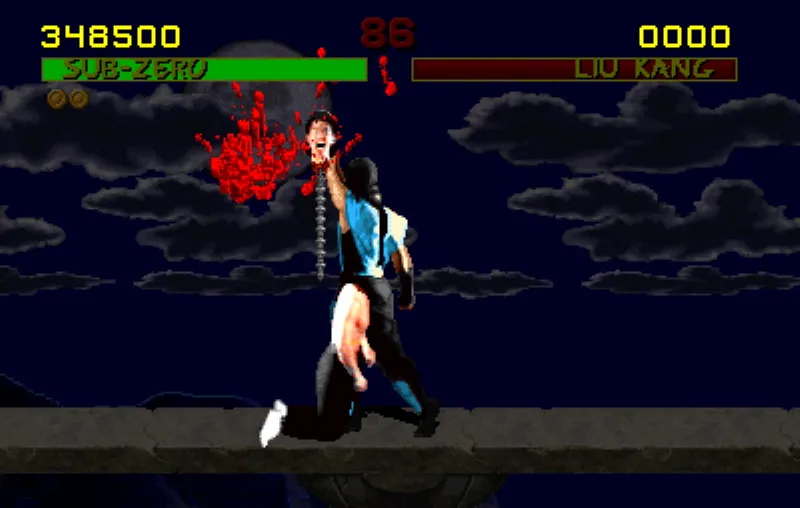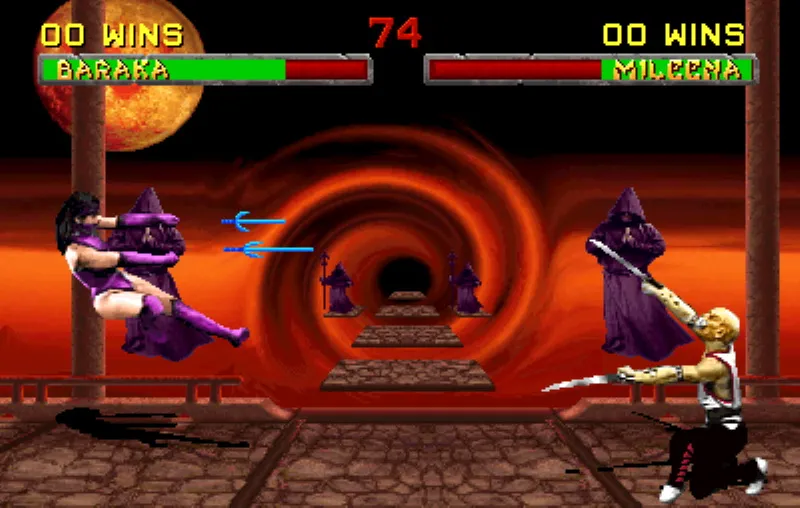
In the early '90s, the fighting game genre was a far cry from what it is today. Inspired by series like Final Fight, Kung-Fu Master, and Karate Champ, the fighting genre emerged in arcades, buoyed by a few significant players in the space. One of those franchises was Mortal Kombat, a bloody, gory fighting game that took concepts from other fighting games and dialed them to 11. The series became notorious for its spine-ripping, heart-grabbing, limb-chopping action, but beneath the controversies and the hearings was a technically sound, capable fighting game.
The Mortal Kombat franchise has continued to grow and evolve, showcasing massive staying power in a sometimes ruthless industry. Now, 30 years into the series' existence, Mortal Kombat has proven it's here to stay as one of the preeminent players in the fighting game space. We caught up with series co-creator Ed Boon to talk about the series' bloody roots, its fascinating evolution, and its current status as one of the industry's heavy hitters.
Before we jump into Mortal Kombat, can you describe how you viewed the fighting game genre and arcade culture as it existed in the '80s and early '90s?
Street Fighter II really invigorated things, and that was a big inspiration for us in doing Mortal Kombat; we wanted to make a more gritty, bad-boy version of Street Fighter. And before that was Karate Champ, but that was a number of years before that. To me, the fighting game genre wasn't even a genre, really. It's not like there was a bunch of games in that category! It was really scattered; every once in a while, one would exist. Street Fighter blew that door open. Mortal Kombat broke the next door open. Between those two games, it suddenly became [a genre] because everybody wanted to get a piece of that. It became a genre based on Mortal Kombat and, before that, Street Fighter's success.
And when you were talking about getting in on that genre that was, as you pointed out, nascent, what were the original inspirations and concepts you wanted to touch on with that first Mortal Kombat?
At the end of the day, I think you could think of it as it was four guys in their 20s, completely inspired by action movies of the '70s, '80s, and '90s, and just mashing up all of those ideas and "Wouldn't it be cool" moments into a fighting game, let loose and basically allowed to do what they wanted to do. You know, four guys in their 20s making a game, and nobody's telling them what to do. That's the result of what Mortal Kombat is.

Obviously, the blood and brutality were very big parts of that formula, but the graphics were also a very underrated part of that equation when people look back at the legacy of Mortal Kombat. Seeing digitized versions of real people was something that you didn't see a whole lot in gaming at the time.
Yeah, some people forget that the company that we made Mortal Kombat for, Midway Games, had kind of pioneered it. Atari had Pit Fighter before us and a couple of games, but Midway was the first company that was banking everything on digitized graphics. It's that photorealism that suddenly there's a person on screen. It's not a sprite that somebody drew; that's a person!
I think that really broke through a new barrier of attachment to the characters. Suddenly, you're seeing an actor doing something; it's not somebody just drawing something really well. I think that was big, and Mortal Kombat was kind of like the culmination of all that. There are a number of games that did well before it, but Mortal Kombat was the sweet spot: big characters, realistic looking, the introduction in some ways to the gore. You know, Narc had gore and a number of other games, but Mortal Kombat was such a mass market. It had such a reach that I think, in some ways, it got credit for doing stuff that Midway was already doing. But it was really the culmination of that technology with Mortal Kombat.
Do you think having those characters look so realistic on screen and then having terrible things happen to them was why the game courted so much controversy?
Probably. I think, again, the photorealism of the graphics was something that was in itself stunning people, and then you add on to that, "He cut his head off? Can you do that?" And we would ask ourselves that. "Can we do that?" There was nobody saying "no" at the time, so we did. I just go back to "imagine making a game with three of your friends and you're all in your 20s and you're just cut loose.

We've all done things in our 20s where we looked back and thought, "Alright, maybe I took that a little too far," and maybe you suffer a consequence from it. But you guys were in your 20s creating this video game, and then suddenly, you have politicians holding hearings about it. What did that period feel like for you? Were you worried you were going to be in trouble, or were you in a different headspace?
I remember at one point, they started talking about a rating system like movies have. I remember thinking to myself, "Yeah, that makes sense. I wouldn't want a seven-year-old buying Mortal Kombat. They have a point." To me, I don't want to simplify it, but it was a natural progression of an emerging technology, right? You can do something more and more realistic with video games; they were approaching movies in terms of resolution and fidelity and all that stuff. So obviously, somebody's going to explore it, like horror movies or action movies. It was inevitable. If Mortal Kombat didn't come out, I guarantee some other game would have done it. The inevitable ratings board would have emerged.
One of the things that were the biggest lightning rods of these hearings was the Fatalities, which have long been a trademark of the franchise. I believe that you said at one point that it was inspired by the Street Fighter II stun mechanic where they just stood there, dazed, and you wanted to land a devastating blow at that moment. But something that's always struck me is that you put out these games, but you didn't release the inputs needed to do these Fatalities. You wanted everybody to discover them on their own. Was there any fear that maybe people would never find them?
Yeah, and that fear went away in like a day. [Laughs] I remember putting in Sonya's Fatality, and it was something ridiculous with the block button. I remember thinking, "If nobody gets it, maybe I'll go do it in an arcade and tell one person and let it spread." And when we put the game on test with Sonya, it was like a day or two before somebody found it. Because once players figured out that there were hidden things when it would say "Finish Them!" they would just rattle the buttons and the joystick, and something would come out, and everybody would lose their mind, and they would remember a part of it. When you have so many players playing the game, inevitably, it does come out, so we weren't concerned at all when we saw how fast they picked up on the other Fatalities.

It really did become this detective situation where it's like, "Alright, the Fatalities are a secret they didn't tell us about... what else aren't they telling us about?" I remember the rumor culture that existed around Mortal Kombat in the arcades in the '90s with things like Reptile and other palette-swapped ninjas. Did you have any favorite rumors you remember hearing about your own game?
Animalities was a big one – you turn into an animal – to the point that we actually put it in the game. And the Reptile thing was something that I actually put in the game, and I didn't tell anybody – not even the other guys on the team. The idea was to make it really rare, and hopefully, it'll be something that is very hard to find, but enough people are talking bout it that there's some validity to it. When it's something like that, if it's rare enough and it turns out to be true, somebody's gonna make up something that's completely fabricated.
